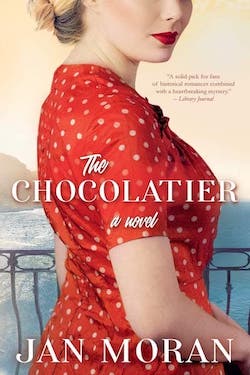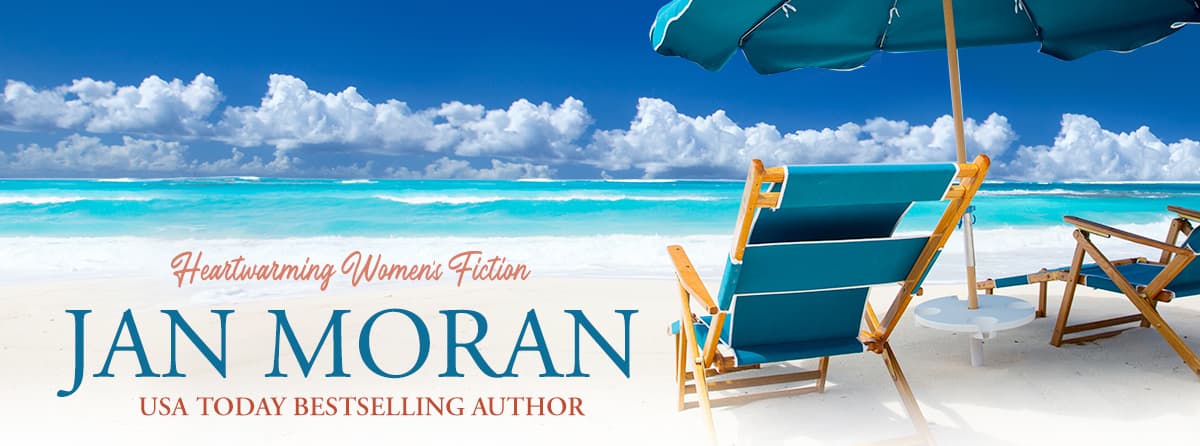![]()
![]()
 One aspect of writing I really enjoy is the research phase, and in the case of The Chocolatier, this task was so enjoyable and enlightening. From meeting chocolatiers, interviewing cacao farmers from Peru, and tasting chocolate to understand the flavor profiles and techniques, I had a wonderful time. This research was critical to writing this family saga, and I couldn't have produced the novel I did without investing this time and understanding the inner workings of the chocolate industry. Of course, since the novel opens with a scene at a chocolate shop in San Francisco and the story turns on a chocolate raspberry truffle, I had to include a chocolate truffle recipe. But not just any recipe, it had to be excellent.
One aspect of writing I really enjoy is the research phase, and in the case of The Chocolatier, this task was so enjoyable and enlightening. From meeting chocolatiers, interviewing cacao farmers from Peru, and tasting chocolate to understand the flavor profiles and techniques, I had a wonderful time. This research was critical to writing this family saga, and I couldn't have produced the novel I did without investing this time and understanding the inner workings of the chocolate industry. Of course, since the novel opens with a scene at a chocolate shop in San Francisco and the story turns on a chocolate raspberry truffle, I had to include a chocolate truffle recipe. But not just any recipe, it had to be excellent.
One of the most delightful chocolatiers and entrepreneurs I met was Chef Michael from Chuao Chocolates in the San Diego area, whose mission is to spread joy through chocolate. I was honored to include his delicious chocolate truffle recipe in The Chocolatier and reproduce it here for you, too.
In the writing of this book, I had the pleasant task of researching chocolate—how cacao is grown, how cocoa and chocolate are derived, and how chefs and chocolatiers employ this magical ingredient to delight chocolate lovers around the world. Everywhere I turned, providence seemed to intercede.

I chanced upon a Chuao chocolaterie in my neighborhood and fell in love with the spicy Mayan chocolate, Firecracker, and other unique, delicious creations. Chuao’s co-founder, Chef Michael Antonorsi, who attended culinary school in Paris and lives in San Diego, invited me into his professional kitchen. He and his business partner, Richard, are brothers descended from Venezuelan cacao growers. Chef Michael was generous in sharing his abundant joy and extensive knowledge of chocolate.
In addition, the team at Valhrona, maker of some of the world’s finest chocolate for chefs and chocolate aficionados was gracious in answering my questions and introducing me to Peruvian cacao planters focused on excellence, sustainability, and fair trade. Their team hosted a tasting and supplied history and technical details that helped me weave in authentic details. Throughout the entire research and writing process, The Chocolatier became a labor of love, and I hope you enjoy slipping into this sweet world of chocolate as much as I did. This recipe has been so popular with readers that several book clubs have served them at their meetings to discuss The Chocolatier. Delicious!
Chocolate Truffle Recipe: Traditional French Wild Truffle Chocolate Confection
Contributed by Chef Michael Antinorsi, Chuao Chocolatier – www.chuaochocolatier.com
Ingredients
Filling:
2 ¼ cups (530 ml) of fresh heavy cream
4 oz. (120 ml) corn syrup or honey
1.5 lbs. (680 grams) of dark chocolate (Around 60% cacao content)
1 oz. (28 grams) of softened whipped butter
Dipping/Coating:
4 cups (500 grams) of melted dark chocolate
4 cups (500 grams) of cocoa powder
Procedure:
- Boil cream together with the corn syrup.
- Chop the chocolate and put into a bowl.
- Add the hot cream to the chocolate and let sit for half an hour until it cools down to around 95ºF (35ºC). Mix softly to incorporate into a smooth chocolate ganache.
- When the mixture is cooled down to around 90ºF (32ºC), add the softened butter and mix in well.
- Leave the mixture to cool down and set overnight.
- With a melon baller, scoop out the individual amounts desired per truffle.
- Using cocoa powder as a nonstick agent in the hands, roll the scooped amount into a small ball.
- Temper 4 cups (500 grams) of melted dark chocolate. (See Notes below.)
- Dip the balls halfway into the chocolate and roll them between the hands to have an even, thin coating all around the truffle. Place the dipped balls on the parchment paper again and let crystallize.
- Dip the balls a second time with an even thinner coating of chocolate. This time roll over the cocoa powder and cover completely. Let set for a few minutes.
- Store the finished product in an airtight container.
Makes about 70 truffles
Shelf life: 2 weeks
Note on Tempering the Chocolate
The simplest way to temper chocolate for truffle making is to use the seeding method. This consists of using a ratio of 75% melted chocolate and 25% solid chips or chopped bar of chocolate.
For this example:
- Melt 3 cups (375 grams) of dark chocolate in a double boiler. Make sure not to heat it too much, but just enough so that all of it is melted.
- Remove from the double boiler and add 1 cup (125 grams) of solid chips or chopped chocolate bar.
- Mix slowly and let the chips melt as much as they can. Do not worry if not all of it melts. The incorporation of the solid chips will slowly seed the melted chocolate and temper it.
- Once most or all of the solid chocolate has melted, proceed with dipping the truffles in the chocolate.
- If the chocolate begins to thicken, then put the bowl back on top of the double boiler and heat slightly. Do not overheat because the temper will be lost.
Note on Infusing Flavors:
- Wild truffles are very versatile and one can infuse the cream with anything that can infuse it, including tea leaves and rose petals, or herbs such as basil, rosemary, and others.
- Bring the cream to a boil and add the leaves. Let steep for 10 minutes, then strain. Measure the cream and add more cream to return to the initial measure. Bring to a quick boil again and use.
Note on Using Alcohol as Flavoring:
- Using an alcoholic beverage as flavoring is always a great idea because it extends the shelf life of the truffles.
- Use alcohol that has a distinctive flavor such as Rum, Whisky, Amaretto, Grand Marnier or Kahlua.
- Substitute an amount of cream that is equivalent to the alcohol used. For example, if 2 ounces (60 ml) of cream are required, remove 1 ounce (30 ml) of cream and add 1 ounce (30 ml) of alcohol.
- Always add the alcohol at the end after all ingredients are mixed.
- Boiling alcohol with the cream will boil away the alcohol.
The Chocolatier is one of my historical sagas, and I’ve bundled several ebooks for you where you’ll meet a cast of strong female characters ahead of their time.












